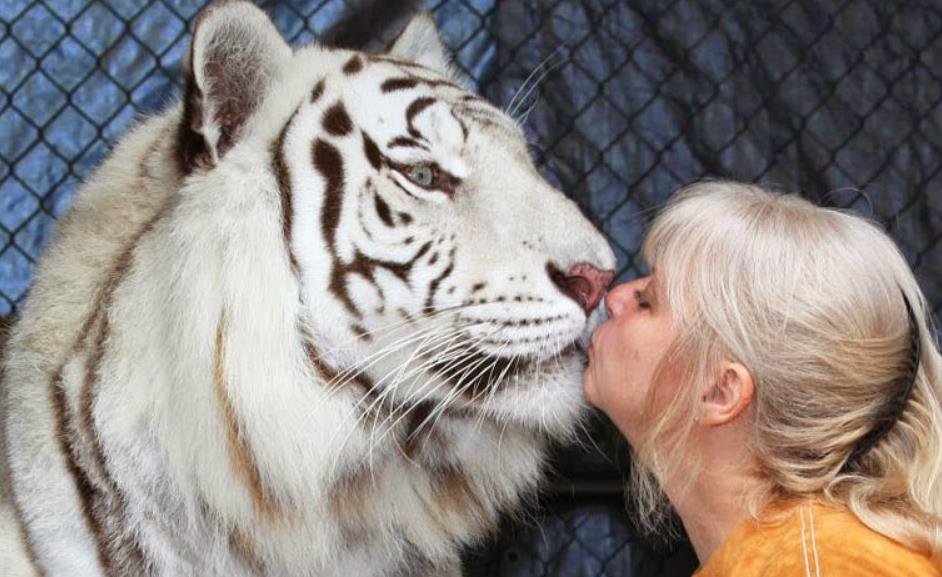A video of a man being chased by his pet tiger in a luxurious home in the United Arab Emirates (UAE) has gone viral on social media, drawing criticism from animal rights activists and netizens who said that the big cat does not belong in a domestic setting.
The video, which was posted on the Instagram page ‘Billionaire Life Style’ on January 5, shows a man running away from a tiger in a spacious living room, while laughing and screaming. The tiger catches up with him and tackles him to the ground, before letting him go. The man then gets up and runs again, while the tiger follows him.

The caption of the post reads, “Only in the Middle East.” The video has since garnered over 3.3 million views and thousands of comments.
The reactions
Many viewers expressed their dismay and anger at the video, saying that the tiger should not be kept as a pet in a house, and that it is cruel and dangerous to do so.
“So wrong, (tiger) does not belong here and needs his freedom. This beautiful animal is not a toy,” wrote one user.
“These animals should not be kept as pets within a structure other than nature,” added another.
Some also pointed out the risk of having a wild animal as a pet, and the possibility of it attacking the owner or others.
“Bro thinks he will escape a tiger by foot but what he is actually doing is engaging the hunt,” commented one user.
“Keep playing with fire and you will get burnt,” warned another.
A few users, however, found the video amusing and funny, and defended the owner’s choice of having a tiger as a pet.
“Very funny! That is definitely a Billionaires lifestyle!” said one user.
“They are just having fun. That’s his pet. Just acting stupid,” said another.
The legal aspect
According to the UAE Cabinet website, the country banned the private ownership and trade of wild and dangerous animals in 2017, following several incidents of people flaunting their exotic pets in public places and endangering the safety of themselves and others.
“The law bans dealing in and ownership of all types of wild and domesticated but dangerous animals. Only zoos, wildlife parks, circuses, breeding and research centres are entitled to keep wild or exotic animals. The public is urged to report cases of wild animals being kept as pets,” the website states.
The law also imposes a fine of up to 700,000 dirhams ($136,000) or a jail term of up to six months for anyone who violates it.
The ethical aspect
Animal rights activists and experts have also condemned the practice of keeping wild animals as pets, saying that it is harmful for both the animals and the humans.
Dr. Elsayed Mohamed, the regional director of the International Fund for Animal Welfare (IFAW) in the Middle East and North Africa, told Gulf News in 2017 that wild animals are not meant to be domesticated, and that they suffer from stress, boredom, and frustration when kept in captivity.
“They are deprived of their natural behaviour, their social needs, and their environmental enrichment. They are also exposed to diseases and parasites that they are not immune to,” he said.
He also said that wild animals pose a serious threat to human health and safety, as they can transmit diseases, bite, scratch, or attack people.
“Wild animals are unpredictable and dangerous by nature. They can never be tamed or trained like domestic animals. They retain their wild instincts and behaviour, and they can turn aggressive at any moment,” he said.
He urged the public to report any cases of wild animals being kept as pets, and to support the efforts of the authorities and the animal welfare organisations to rescue and rehabilitate them.
